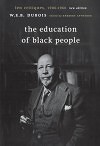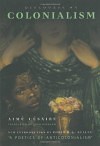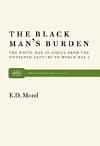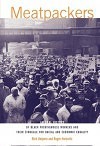Race
Recently, there has been a great deal of discussion about the racism of white workers. Unfortunately, little has been said or written about how white working-class racism can be overcome. In this essay, I examine a prison uprising in which black and white convicts struggled with racism and overcame it to a surprising degree | more…

Why do racial, religious, ethnic and national identities have such purchase on the lives of so many people, and why are they still at the center of so many major conflicts at the beginning of the twenty-first century? What form is racism taking amidst the inequalities, refugees and mass migrations of today’s global capitalism? How does the American state—as both the manager of the world capitalist order and as the embodiment of an all-too-often chauvinist national identity—fit into the picture of ‘Fighting Identities’? | more…

Undoubtedly the most influential black intellectual of the twentieth century and one of America’s finest historians, W.E.B. Du Bois knew that the liberation of African Americans required liberal education and not vocational training. He saw education as a process of teaching certain timeless values: moderation, an avoidance of luxury, a concern for courtesy, a capacity to endure, a nurturing love for beauty. At the same time, Du Bois saw education as fundamentally subversive. This was as much a function of the well-established role of education—from Plato forward—as the realities of the social order under which he lived. He insistently calls for great energy and initiative; for African Americans controlling their own lives and for continued experimentation and innovation, while keeping education’s fundamentally radical nature in view. | more…

This classic work, first published in France in 1955, profoundly influenced the generation of scholars and activists at the forefront of liberation struggles in Africa, Latin America, and the Caribbean. Nearly twenty years later, when published for the first time in English, Discourse on Colonialism inspired a new generation engaged in the Civil Rights and Black Power and anti-war movements. | more…

Since it was first published in 1920, The Black Man’s Burden has been widely recognized as a prime source of education and influence in the field of African history. | more…

The Political Culture of Black America
Many people from divergent ethnic backgrounds, speaking various languages, and possessing different cultures now share a common experience of inequality in the United States. Yet there is an absence of unity among these constituencies, in part because their leaders are imprisoned ideologically and theoretically by the assumptions and realities of the past. | more…

Available for the first time in paperback, Meatpackers provides an important window into race and racism in the American workplace. In their own words, male and female packinghouse workers in the Midwest—mostly African-American—talk of their experiences on the shop floor and picket lines. They tell of their fight between the 1930s and 1960s for economic advancement and racial equality. In cities like Chicago, Kansas City, Omaha, Fort Worth, and Waterloo, Iowa, meatpackers built a union that would defend their interests as workers—and their civil rights. | more…





